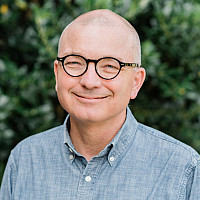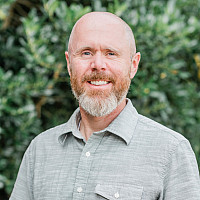Emory & Henry College Receives $25,000 Grant from Roller Bottimore Foundation for Preservation of Historical Material with Public Accessibility
Emory & Henry College got a boost to support local and regional history preservation in Southwest Virginia thanks to recent funding from the Roller Bottimore Foundation. “The Watershed Project: Civic Memory for a Citizenship of Place” has a two-fold purpose - to preserve, index, and archive a wide range of historical material related to the history and operation of Emory & Henry College, the oldest institution of higher learning in Southwest Virginia, and to utilize these materials to create an engaging, dynamic, born-digital, open-source history of the region of Southwest Virginia and, more specifically, the college’s role as an institutional citizen of that place.
“The Watershed Project draws its name from the river basins that roughly define the region of Southwest Virginia,” said Tal Stanley, Ph.D., project director and Resident Scholar for the Citizenship of Place at Emory & Henry. “From their headwaters to their confluence with the Ohio and Tennessee rivers, these are the New River-Kanawha, the Big Sandy, the Clinch, and the combined Holston-French Broad basins.”

The Watershed Project is being undertaken by the Appalachian Center for Civic Life at Emory & Henry. The project is supported by an advisory panel composed of scholars and members of the community, which will meet regularly to offer feedback, ideas, and assessments of the project.
The director of the Appalachian Center for Civic Life, Scott Sikes, Ph.D., notes, “In terms of sustainability, a primary component of this work will be the preservation of a large amount of important historical material which will be added to a digital archive that will be online and publicly accessible.”
These materials include account ledgers, student records, employee records, inventories, correspondence, and other materials dating back to the founding of the institution in 1836 and continuing into the 20th Century. Taken together, these sources offer key details and records related to the history of Emory & Henry and to the social history of the region and communities surrounding the college.

“The resulting work will be a dynamic, living tool. It will be ‘born digital,’ meaning that, unlike a static printed narrative, the story can continue to grow and expand as time goes by,” said Sikes.
The initial discovery phase of this project has begun and more information can be accessed at the project web page, found here. The final result will be a virtual history of Southwest Virginia and Emory & Henry College that will be multidimensional, dynamic, and useful to scholars, students, teachers, and members of the community.
About the Roller Bottimore Foundation:
The Roller-Bottimore Foundation, located in Richmond, Virginia, was established in 1981 by Elizabeth Roller Bottimore to serve her family’s interest in history and historic preservation.
Ms. Bottimore was the daughter of John Edwin Roller and Lucy Brown Cabell of Rockingham County, Virginia. Her father was a lawyer and successful businessman in Harrisonburg, Virginia. Ms. Bottimore was a graduate of Wellesley College. Her husband, William G. Bottimore, an alumnus of Emory and Henry College, was a teacher and insurance executive. Ms. Bottimore served as a Director of the Foundation from its first Board meeting in December 1981 until her death in May 1993. Until 2019, the Board consisted of one or more Directors who were members of the Roller or Bottimore families.
Since its origins and original corpus of $100,000, the Foundation has provided grants to hundreds of organizations. These funds have promoted historic preservation and renovation, major capital projects, publications and archives, archaeology, and other projects and programs in keeping with the Foundation’s original mission.
About the Appalachian Center for Civic Life at Emory & Henry College:
Established in 1996, the Appalachian Center for Civic Life provides a variety of ways for Emory & Henry College students to explore vital questions of place and their responsibilities as citizens and members of a community. Students already possess the skills, knowledge, and understanding to be active and engaged in the world and that they have the ability to serve as agents of social change even before becoming college graduates. The College provides opportunities for students to be involved in a variety of civic engagement projects that connect with their academic journey while providing real, measurable outcomes for the community.
The Center’s focus is on the interconnection of place, citizenship, public policy, and social capital. The Appalachian Center for Civic Life employs a place-based model of civic life, one that connects citizenship and learning as part of a response to the long, environmental and human history of a place.
Open gallery


